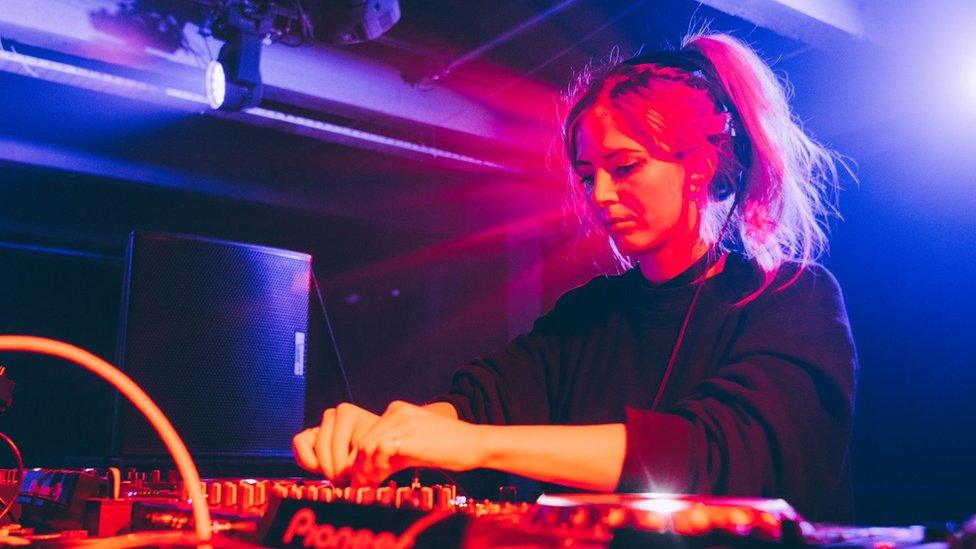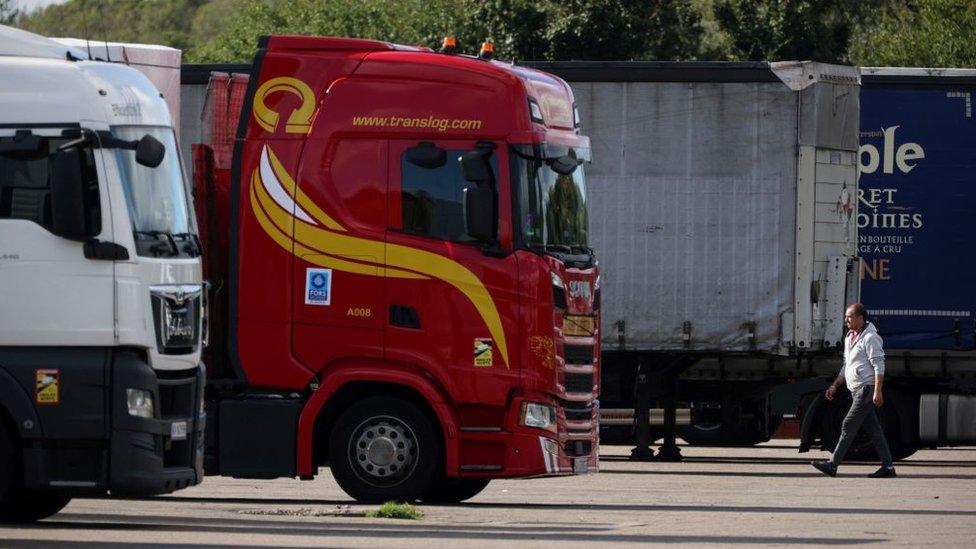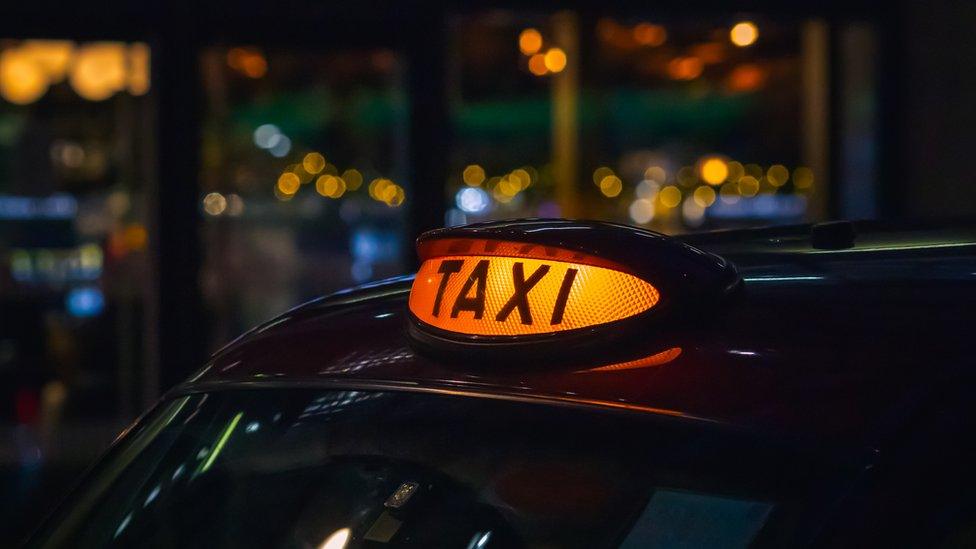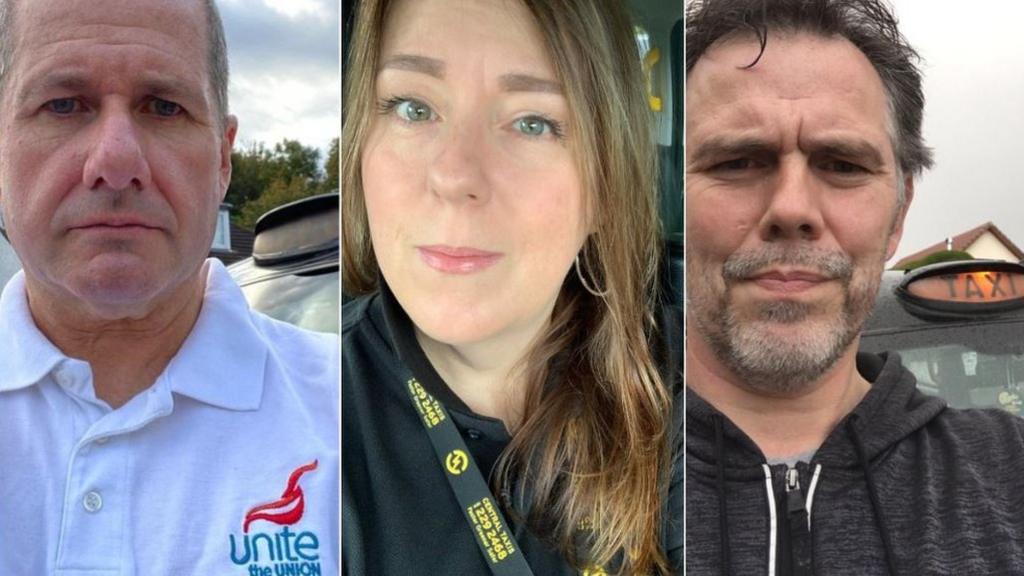Taxi shortage 'will lead to a woman being harmed' after night out
- Published

Rosie Shannon has found herself having to walk home alone after leaving a nightclub
A nightclub DJ has said a shortage of taxi drivers means it is "only a matter of time" before a woman is harmed trying to get home from a night out.
Rosie Shannon described the situation in Glasgow as "extremely scary".
She has been left waiting for hours in the freezing cold and walking home alone in the middle of the night because of a lack of cab drivers.
Glasgow Taxis told BBC Scotland it had lost a third of its drivers during the pandemic as many left the industry.
"I am waiting for a taxi for up to two hours when I leave work at the club," Rosie, 29, said.
"It is freezing cold, sometimes it is raining. I am being approached by random men on the street. It is getting to the point I am having to walk home on unlit, dangerous streets. It is extremely scary.
"It is only a matter of time before something really bad happens to a woman on the street. I am not only fearing for my safety…but also my friends."
Taxi drivers lost a lot of business during the Covid lockdowns, and many decided to leave the industry all together.
Some switched to delivery or warehouse jobs where there is a guaranteed income and more sociable hours, while some older drivers chose to retire.
But as Covid restrictions have eased and the night-time economy has opened up, demand for cabs has increased.
Efforts to recruit more drivers are being hampered by the year-long training required to become a licenced taxi driver.

'I was looking for a bit more security'

Many former cabbies have chosen to become HGV drivers
Jim Buchanan worked as a taxi driver in Glasgow for 25 years. He was forced to find an alternative job as his cab work dried up when the coronavirus pandemic hit.
The 57-year-old is now an HGV driver.
He said: "The taxi trade was my life but when Covid struck I just thought, 'there is life out there away from the taxis'.
"I was looking for a bit more security compared to what I had before. Now the pay is a steady income every week. It has been good for my family.
"In my new job, I don't have to deal with drunks or anti-social behaviour. I don't get as stressed anymore."

The taxi driver shortage is mirrored across Scotland.
Aberdeen Taxis told the BBC it had 1,200 taxis pre-pandemic, but now only has 550.
Chris Douglas, an Aberdeen Taxis director, said: "We have a 50% shortage of drivers. Evenings and weekends are even worse.
"This is a national problem. Between now and Christmas, it is going to get worse. Demand for the night-time economy is going to grow between now and Christmas. This is going to unfold further.
"It does take about a year to become a taxi driver. We are going to have to speak to the local authority and then take it from there. They might be able to speed things up."

Glasgow Taxis has lost a third of its drivers during the pandemic
Glasgow City Council leader Susan Aiken met taxi officials to discuss the crisis this week.
Dougie McPherson, chairman of Glasgow Taxis, described the talks as positive and said he hoped for imminent solutions.
He said: "The reality is it can take as long as a year to become a licenced taxi driver. I would look to Glasgow City Council to accelerate that process, as long as there are no corners cut, to as short a period as possible.
"I would expect that to be reduced to months. The council has it within its gift to streamline the process.
"We are currently going through a situation where there is a lack of night service buses, the underground finishes at 10pm and extra footfall in the city amid the recovery from Covid. We are in the perfect storm. "
A spokesman for Glasgow City Council said the issues facing the taxi and private hire trade "go far beyond Glasgow and perhaps also the influence of the licensing system".
He added: "However, we have met with representatives of the taxi trade on the issue of driver availability and we will work with the trade to identify whatever measures we can in an attempt to have more drivers operating in the city."
- Published9 October 2020
